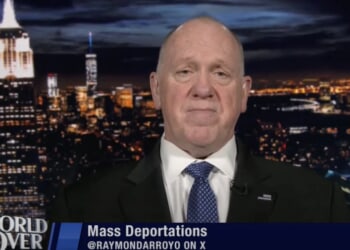
Charlie Kirk’s murder was senseless and horrific. We wish it could be undone, but it cannot. But it does offer us an opportunity to honor his legacy—by fostering a national conversation about our differences, by reaching across the aisle for unity, and by doing what Kirk did best: listening to others and giving them a turn at the microphone. To do that, we must stop looking at our adversaries as nameless and faceless enemies on a tiny screen.
Sadly, many have chosen the digital battlefield. It began with those who shamefully celebrated the death of a political adversary online. It continued as commentators rushed to deny that this was happening. Journalists at once venerable news outlets misquoted or mischaracterized Kirk, implying that the world was better off without his voice.
The alleged shooter’s left-wing beliefs and motives have become impossible to deny, but that hasn’t stopped many from trying. They have tried to shift focus to Tyler Robinson’s race (he was white, so he must be conservative), his family connections (his parents are Republicans!), or, in a bizarre twist, to his sensitive and fragile emotional state—epitomized by Montel Williams’s characterization of him as a “love-torn child.”
True, parts of the online Right aren’t covering themselves in glory, either. Posts with millions of views have alleged that the assassination was somehow the work of Israel. Many claiming to be close to Kirk are micro-analyzing his private messages, searching for far-fetched hints that suggest he shared their anti-Semitic worldviews.
The pattern is clear. The more time you spend online, reading posts designed to provoke emotional responses, the more the world can start to look like a battlefield. Instead of searching for perspective in the immense volume of information and opinion online, many seek out the corners of the Internet that confirm our priors and cast doubt on anything from the other side—from “them,” whom we see only in words or videos chosen carefully to highlight their supposed evil. We then take these clips and posts and categorize them and their authors neatly into “good” or “bad” categories.
The chaos and confusion of online discourse have a hand in breeding the type of nihilism that has likely motivated many recent shooters, from Tennessee to Minneapolis. As Martin Gurri explains in The Revolt of the Public, the more information we have, the less we know—and the less we know, the less we trust. We view the world through the shattered mirror of social media and, as a result, end up distrusting our institutions, our representatives, and our neighbors. As the walls of community collapse, we scramble to line up with our team, firing insults, if not also bullets, at whomever we deem a threat.
Tyler Robinson appears to have been consumed by this dynamic. From his Discord activity to his bullet casings riddled with memes and video game references, evidence shared publicly by law enforcement suggests that he saw the world through this digital prism of Us vs. Them. When he texted his roommate that “some hate can’t be negotiated out,” he was operating not only on warped assumptions based on curated interactions with Kirk’s words but also under the belief that the situation was so dire it required him to take matters into his own hands. Four out of ten Americans under 30 report getting their news from “influencers,” many of whom portray the national discourse as an existential battle to be “won” by any means necessary. Under their spell, violence can seem an acceptable solution.
The toxic waters of social media affect all of us, whether we are swimming in them or just getting splashed. It’s impossible to avoid this, even if you’re not active on platforms. It bleeds into national news, changes the behavior of those around us, and influences voting patterns. Thankfully, most of us don’t act violently or incite violence in response, but some do.
Social media won’t change, but we can. If we take a step back, talk to one another, and most importantly, understand that what we see and hear online is not always an accurate representation of reality, we may conclude that the “other” is really just a friend or neighbor with different views. That goes for left-leaning individuals who view every right-winger as a hatemonger and for right-leaning people who overemphasize the contempt of the left. When you broaden your perspective, you can see that even the shameful and preposterous reactions to Charlie Kirk’s death represent a slim fraction of all American voices.
Resisting the digital civil war is hard work. But so was Charlie Kirk’s calling: visiting college campuses and inviting people who disagreed with him to have their say. Looking our fellow Americans in the eye, rather than through the harsh glare of a screen, is the least we can do now.
Photo by JOSH EDELSON/AFP via Getty Images
City Journal is a publication of the Manhattan Institute for Policy Research (MI), a leading free-market think tank. Are you interested in supporting the magazine? As a 501(c)(3) nonprofit, donations in support of MI and City Journal are fully tax-deductible as provided by law (EIN #13-2912529).

















